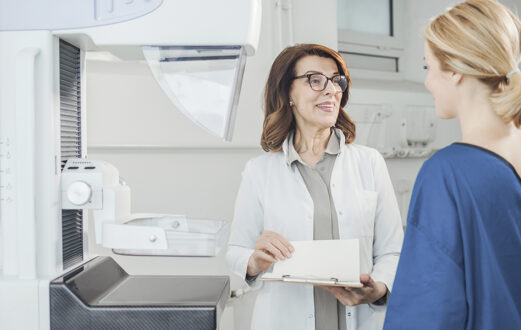
4 Things You Should Know about the HPV Vaccine

When it comes to vaccines, people often have questions about safety, side effects, whether it’s worth getting, and more. Fortunately, your doctors are always willing to answer those questions and help you feel more confident in making decisions about your health. If you’re having doubts about getting an HPV vaccine, or having your child vaccinated, read more about what it is and how the vaccine can benefit you.
1. What is HPV?
Short for Human Papillomavirus, HPV is a virus that causes certain types of infections in people. It functions like other viruses by taking over normal cells, using them to make copies of itself, and continuing to infect nearby cells.
Because HPV works slowly, your body’s immune system usually gets rid of the virus before it causes disease. However, if it stays in your body, an HPV infection can go unnoticed and gradually get worse.
2. Why is an HPV vaccine important?
HPV is one of the most common sexually transmitted infections (STI) in the United States. Left untreated, it can cause health problems like genital warts as well as six types of cancer. These are cancers of the:
- Cervix, vagina, and vulva in women
- Penis in men
- Anus and back of the throat (including the base of the tongue and tonsils) in both women and men
Of those types, only cervical cancer can be detected early through the use of a screening. HPV often shows no symptoms, which means someone might not know they have–or can spread–the virus. Getting a vaccine is the best way to protect yourself and others against the effects of an HPV infection.
3. How safe and effective is an HPV vaccine?
According to the Centers for Disease Control and Prevention (CDC), more than 120 million doses of the HPV vaccine have been administered nationwide. As a result, HPV infections that cause most HPV cancers and genital warts have dropped 71 percent among teen girls.
Additionally, more than 12 years of research have shown the vaccine to be consistently safe and effective, with very few serious issues. Common side effects of the vaccine might include:
- Pain, redness, or swelling at the injection site
- Fever
- Dizziness
- Nausea
- Headaches/tiredness
- Muscle and joint pain
These side effects are mild and often subside quickly.
4. Who should get an HPV vaccine?
Most people are eligible for an HPV vaccine. Because HPV is an STI, the vaccine works best if administered before sexual activity begins, since there will have been no exposure to HPV yet. Therefore, healthcare professionals recommend the vaccine for boys and girls who are 11 to 12 years old. The vaccine is approved for people through age 45. However, after age 15, three doses are required (as opposed to two doses for younger individuals).
Need more info?
No matter what steps you’re taking for your health, you should always feel confident in your decisions. Whether you have more questions or want to schedule your HPV vaccine, our experts are here to help. Talk to your doctor today and let us know what we can do for you!

